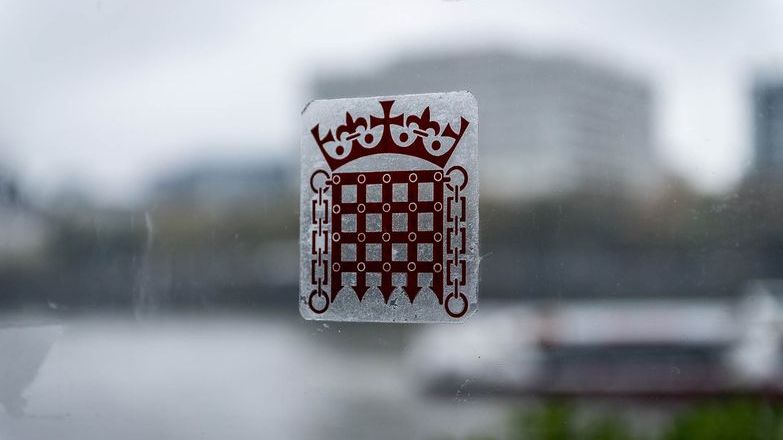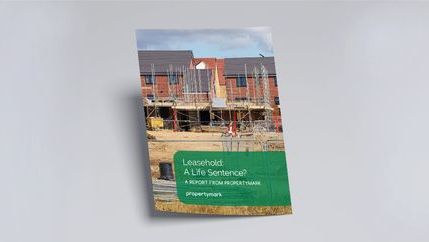
During the Second Reading on 24 May 2021, the House of Lords debated the purpose and key areas of the Bill. Baroness Andrews (Labour) quoting Propertymark’s research as published in our Leasehold: A Life Sentence report to highlight issues around ground rents and unreasonable service charges.
Leasehold: A Life Sentence?
Thousands of homeowners are stuck in leasehold houses they cannot afford to continue living in and cannot sell. We surveyed over 1,000 people who bought a leasehold house to explore the extent of the scandal which has left thousands of Brits trapped in leases with third parties.
Leasehold Reform (Ground Rent) Bill
At the Queen’s Speech on 11 May 2021, the UK Government outlined its plans to introduce legislation to ensure leaseholders in England and Wales of new, long residential leases cannot be charged a financial ground rent for no tangible service.
The main elements of the Bill are:
- Restricting the charging of ground rents on new long residential leases
- Enforcing the charging of a prohibited ground rent by way of a civil penalty regime, including fines of up to £5,000 for freeholders that charge ground rent in contravention of the Bill
- Ensuring that there can be no financial demand for ground rent for all future qualifying leases so that future leaseholders do not face unfair terms or significant ground rent liabilities
Propertymark believes that the UK Government must extend the legislation to those who already own a leasehold property and retirement properties to create a level playing field.
Ground rents and unreasonable service charges
Throughout the debate, Peers expressed concern regarding ground rents and unreasonable service charges existing leaseholders are required to pay.
Lord Best (Crossbench) congratulated the UK Government for bringing forward the Bill arguing that ending ground rents will enable a much-needed reawakening of the commonhold model. He also said that improving the lives of leaseholders depends not just on the legal framework, of which the ground rent issue is an important aspect but on the performance of the property agents who, day by day, manage the properties.
Lord Bourne of Aberystwyth (Conservative), a former Housing Minister outlined concerns about the enfranchisement of existing long leases, arguing that if the provisions are brought into force as planned in 2023, there is the possibility that this could create a two-tier leasehold market.
Baroness Pinnock (Liberal Democrat), a former Councillor and Council Leader said the failure of the Bill to deal with past abuses of ground rent and service charges will leave existing leaseholders in a worse position, because it will create a housing market where new-build properties, with zero ground rents, will be far more attractive than those with spiralling ground rents.
In addition to highlighting Propertymark’s research and expressing concerns that the Bill will only deal with new leases, Baroness Andrews (Labour), asked what plans the UK Government have to encourage local authorities to ramp up the capacity of the local trading standards in order to ensure any new rules are enforced.
Lord Greenhalgh (Conservative), Housing, Communities and Local Government Minister, opened the debate and responded on behalf of the UK Government stating its commitment to reform the leasehold system. However, he added that it is complex, and it will take time to get the detail right.
In the relation to enforcement, he said that the Competition and Markets Authority is taking action in two key areas. Firstly, tackling certain instances of the mis-selling of leasehold property. Secondly, addressing the problems faced by homeowners due to high and increasing ground rents.
Regarding the timetable for when wider leasehold reform would take place, Lord Greenhalgh said the Law Commission has made it very clear that bringing in the more detailed legislation will take at least a year, so, ideally, the UK Government hope to get this through quickly with the second step of the legislation being brought forward in the next Session of Parliament.
Regulation of Property Agents (RoPA)
On RoPA the Minister said, the UK Government welcome the working group’s final report and are under consideration. He added that the UK Government is committed to ensuring that those living in the leasehold sector are protected from abuse and poor service and to raising professionalism and standards among property agents.
Next steps
The Leasehold Reform (Ground Rent) Bill was introduced on 12 May 2021 and following the Second Reading will now move to Committee Stage on 9 June 2021 for line-by-line examination.






